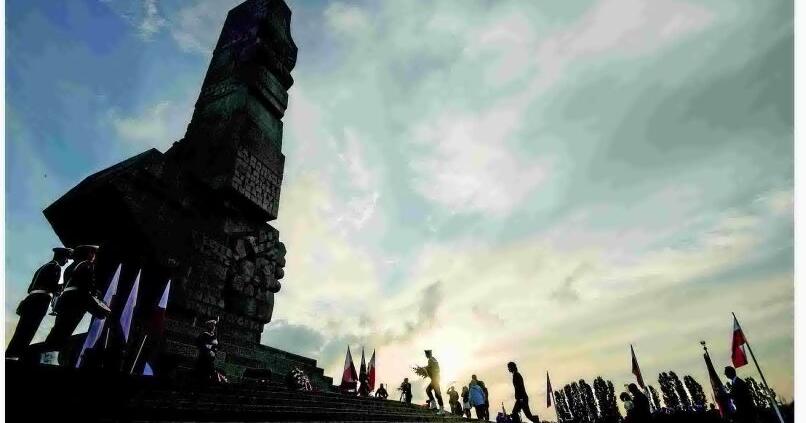POLAND | SOLEMN ANNIVERSARY
WARSAW, Poland — Poland’s leaders emphasized the importance of a strong defense in the face of the conflict in neighboring Ukraine as they led solemn ceremonies early Sunday to commemorate the 85th anniversary of the German Nazi invasion and bombing of Polish territory at the beginning of World War II.
Sirens blared and a memorial bell rang as President Andrzej Duda and German deputy ambassador, Robert Rohde, took part in a ceremony in the town of Wielun, the first civilian target of German bombing in the early hours of September 1, 1939. Approximately 1,200 people lost their lives in the attack, which witnesses say began at 4:40 a.m.
“We can say that we have forgiven, but we still remember the pain and the tens of thousands directly affected by the Germans,” Duda stated. He also urged Berlin to make reparations.
People are also reading…
Meanwhile, at a monument on the Baltic Sea’s Westerplatte peninsula, where a military outpost was shelled by a German warship just minutes after Wielun was attacked, Prime Minister Donald Tusk and Defense Minister Władysław Kosiniak-Kamysz laid wreaths and attended a memorial roll call for fallen soldiers. During that time, the outpost’s outnumbered troops fought for seven days before surrendering to the Germans, becoming a symbol of heroism and patriotism.
Tusk pointed out that war is once again present in the region due to the ongoing Russian invasion of Ukraine that began in 2022.
He emphasized the need for more than just “reconciliation” or feeling guilty, stating that the key lesson from history is the readiness to mobilize Europe, NATO, and the entire western world to defend against the aggression witnessed in Ukraine today.
“Today we will not say ‘Never Again.’ Today we must say ‘Never Again Alone’,” added the prime minister.
Tusk also mentioned Poland’s efforts to build “the most modern army in Europe, one of the strongest in Europe,” to contribute actively to the unity and strength of the NATO defense alliance and the European continent, ensuring the defense of their civilization and preventing any future risks to their homeland.
German Foreign Minister Annalena Baerbock expressed her wish for Poles and Germans to have a completely normal relationship with each other, in line with the desire of former Polish foreign minister Władysław Bartoszewski, who survived the German invasion.
She emphasized the responsibility, “while remembering our past,” to work continuously to maintain their friendship.
During World War II and the German occupation, Poland lost 6 million citizens, a sixth of its population, including 3 million Jews. The country also suffered significant damage to its infrastructure, industry, and agriculture.
Poland’s previous government demanded $1.3 trillion in reparations from Germany, while Tusk’s current Cabinet has adjusted the demand to some form of compensation.





